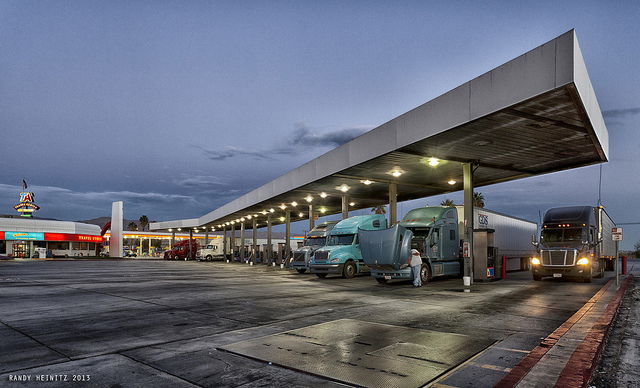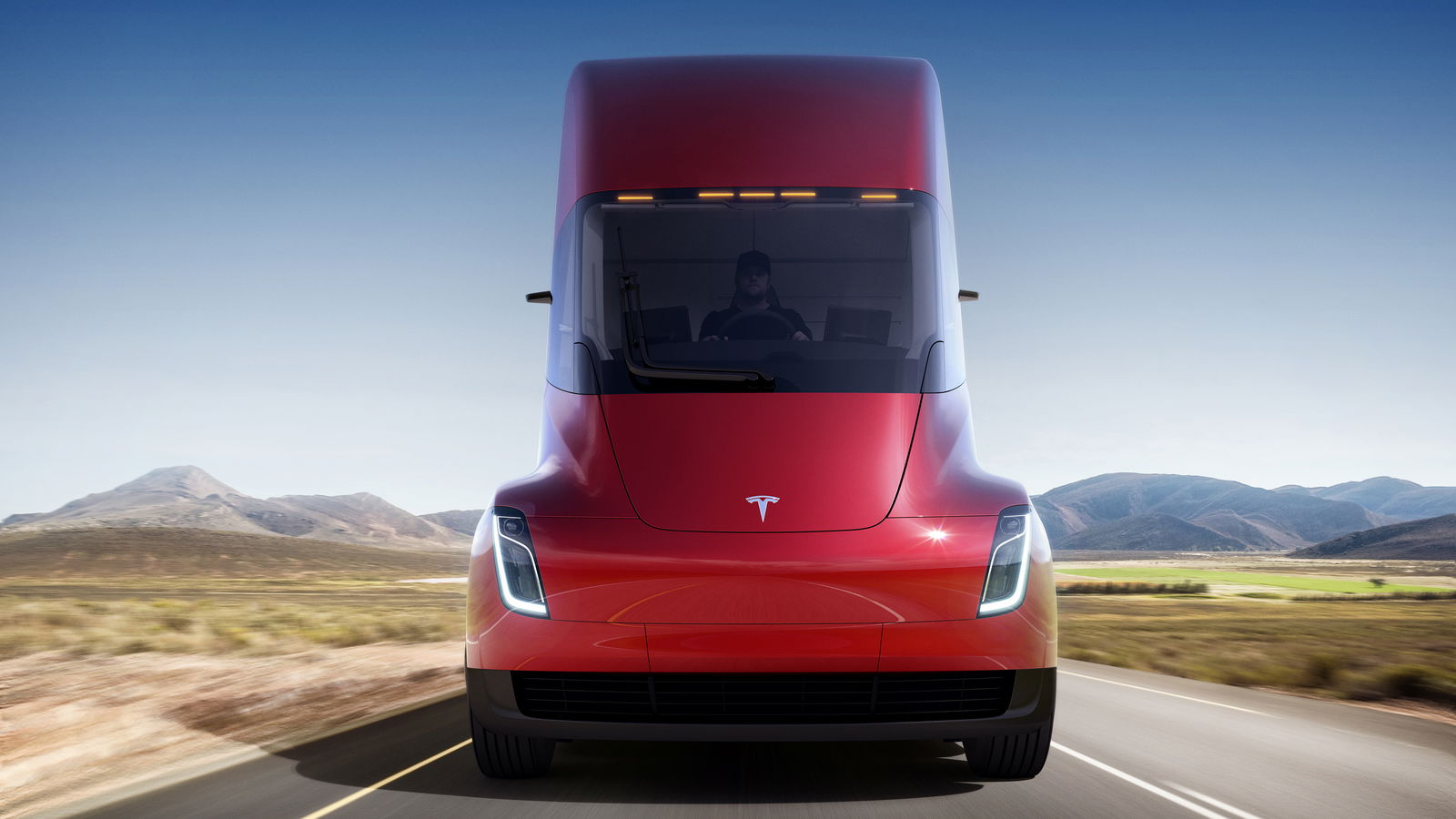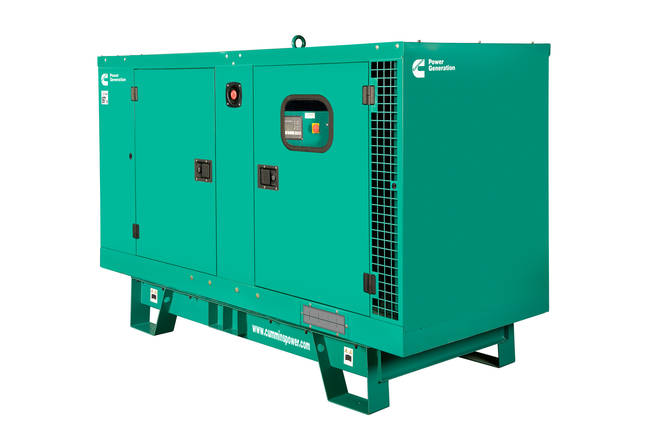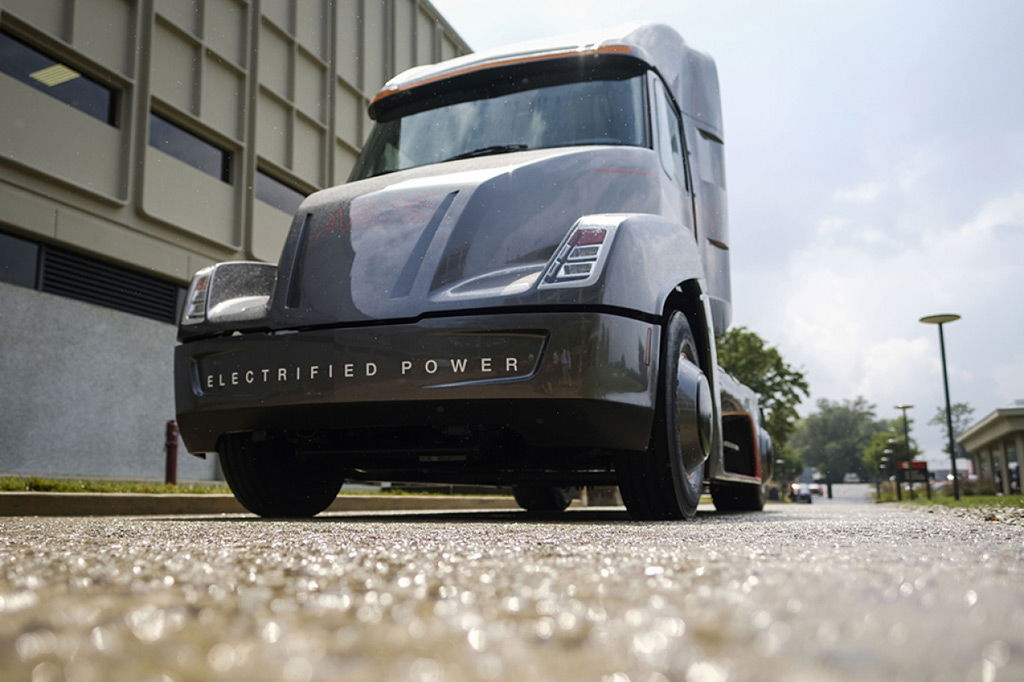Here's The Tesla Semi's Really, Really Big Problem
I, for one, welcome our electric semi-truck overlords.

I, for one, welcome our electric semi-truck overlords.
If you know anything about my views on Tesla Motors, electric vehicles, and Elon Musk’s outrageous business strategies, you’d probably expect me to hate the Tesla Semi about as much as the Wicked Witch of the West hated water. Truth be told, I can personally get behind the idea of an electric transport truck. For one, it might mean that there’s more petroleum for the rest of us. More importantly, however, it could potentially make the world’s air that much less toxic to suck into our chests. What’s more, it could be Tesla’s best real chance at not losing money. Which means the Roadster that they also released yesterday might actually be a thing. I might not be the world’s biggest Tesla fan, but I digress. This might be a good idea, after all!
Of course, I wrote that paragraph without using one of humankind’s most reliable and valuable instruments ever created…the calculator.

Before I start crunching the numbers behind Tesla’s electric truck-driving fantasy, I should point out that they did pleasantly surprise me with their solution to the long-reviled Achilles heel of EVs thus far: range and charging anxiety. Although it’s perhaps still inadequate for long-haul usage, the Tesla Semi’s 500-mile driving range sets the bar quite a bit higher than I was expecting. Even more impressive was Tesla’s “Megacharger”, which promises to provide the Semi with up to 400 miles of charge in just 30 minutes. That’s more than enough time for a trucker to go into the truck stop, have a shower, grab a coffee and some road snacks, and get back on the road.
Now this sounds exciting, but it’s not surprising that this king of charging uses a lot of power. Tesla claims that the new Megacharger will have a charging output of “more than ten times the power levels” of its Superchargers. Those put out approximately 120 kilowatt-hours of energy, which means that the Megacharger could put out close to 1.5 MWh at peak load.
In other words, in the time span of the truck driver’s lunch break, the Tesla Semi will consume about as much electricity as the average North American home does in one month. That’s one truck, with one trailer, in one half of an hour.

Of course, there’s rarely just one truck stop in a major city, and there’s usually more than one truck filling up at each one. This means that truck stops are going to end up being huge drains on the power grid if EV truck transport is going to become a reality. I’m not a power systems engineer, but I’d be willing to bet that even the best-equipped power grids will need to add some production facilities just to keep things running smoothly.
This could result in trouble with the Tesla Semi’s next-strongest perceived advantage: running costs. Tesla claims that the Semi will cost around $1.20 U.S./mile to run, which is about 20% cheaper than what it takes to run the average diesel semi. However, according to the MIT Technology Review, that figure was created using an estimated electricity cost of just 7 US cents per kilowatt-hour. This is close to half of what the average American homeowner pays, and that’s a rate that could easily jump if there were to be some significant increase in electricity consumption (like you would expect if hundreds of electric tractor-trailers were plugged in at once).
But let’s assume the price of power stays where it is. Will it actually be cheaper for trucking companies to double down on the Tesla Semi? The price of the truck hasn’t been revealed, but the MIT Technology Review estimates that the Semi’s batteries alone will cost over three times as much as the average oil-burning big rig. This means that the truck will have to put on over 1 million miles before it actually starts saving money versus the diesel status quo. While that’s not unreasonable mileage to expect out of a big semi, the financial rewards certainly aren’t as glorious as Elon Musk wants you to believe.

And then there’s the issue of truck stops—will they be converting diesel pumps into power plugs, and will this be good for the environment? Given Tesla’s woeful financial situation, you’d have to assume that they would have to install their own plugs at existing truck stops than it would be to build all-new charging facilities. But where is all that electricity going to come from? That’s a lot of power for Tesla to demand out of utility companies, and that could cost Tesla dearly.
But there might a relatively cheap, easy solution.

You see, these green boxes could easily satisfy the energy requirements of the Megacharger. They cost far less than a new power station, and they generate electricity from something that’s already available at every single truck stop, minimizing the amount of infrastructure that needs to be upgraded. This makes it an attractive option for implementing Tesla’s pipedream of high-voltage shipping.
It’s a diesel generator, and I’m sure the phrase defeating the purpose has already popped into your head. However, if this was such a stupid idea, then why is Cummins—one of the biggest diesel engine manufacturers in the world—equally gung-ho about building their own electric semi?

This is the Cummins Urban Hauler, and it was released before the Tesla Semi. While it only has a 200-300 mile range, it can be fitted with a “range extender” (read: a Cummins diesel engine). Could it be that Cummins has some doubt about the feasibility of electric trucks? Maybe not, but they’ve certainly created some food for the world’s cynics.
Of course, these conjectures are meant to be slightly humourous and sarcastic. But the poignant reality remains: Tesla has released yet another logistically-challenged, pie-in-the-sky concept at a time where it’s getting harder and harder to actually take them seriously. Tesla needed to start delivering on their promises a long time ago. They absolutely can’t afford to be in the business of imaginary business, and they won’t be for much longer if the Tesla Semi turns out to be a bust.
Comments
Electric power in quantities to supply semis efficiently is years away. What if we (the U.S.) actually used and invested in more efficient and powerful rail systems. I’d be willing to bet a lot of money that’s more efficient than turning coal into electricity for a jog across a single state.
Turbodiesel semi master race.
Electric car are gonna fail horribly. People are starting to realize that we don’t have enough power AND the batteries are polluting when making them.
“More importantly, however, it could potentially make the world’s air that much less toxic to suck into our chests” Trust me electric trucks wont make any difference. The whole car industry stands for not even 20% of the worlds pollution and trucks stand for less than 1%, The real enviroment destroyers are the meat industry and big mines such as coal or lithium mines (all of teslas batteries are lithium batteries btw)
Good point-the cost and power consumption of several of these trucks at one stop would be absurd. Seemingly, many have overlooked this point-including myself. I was thinking the range was a bit on the low side…but it is still new for an EV semi.
Most diesel semis will do 1200-2000 miles on a tank (or two, for realism). If battery technology can be made cheaper and lighter, I’m sure this is when this truck will truly shine.
We are BBS logistics LLC, a company which renders Services that includes facilitating successful business Transactions between Petroleum Buyers and reputable refineries existing in the Global Oil and Gas Market.
We deal straight with Russian and Netherlands Oil Renowned Refineries as direct Mandate.
We have products on CIF/ FOB basis: JP54, JETFUEL A1, VIRGIN OIL D6, D2, MAZUT, LNG, EN590 10PPM etc.
We also render:
i. Logistics of Oil Storage and Shipping.
ii. Product Purchase.
iii. Product Sales. etc…
Let us know what Product, Volumes and Destination you want after then we shall revert to you with Seller’s SCO.
Contact us for Inquiries..
Email: info@bbs-logistics.com
Skype: info_1101918
Pagination